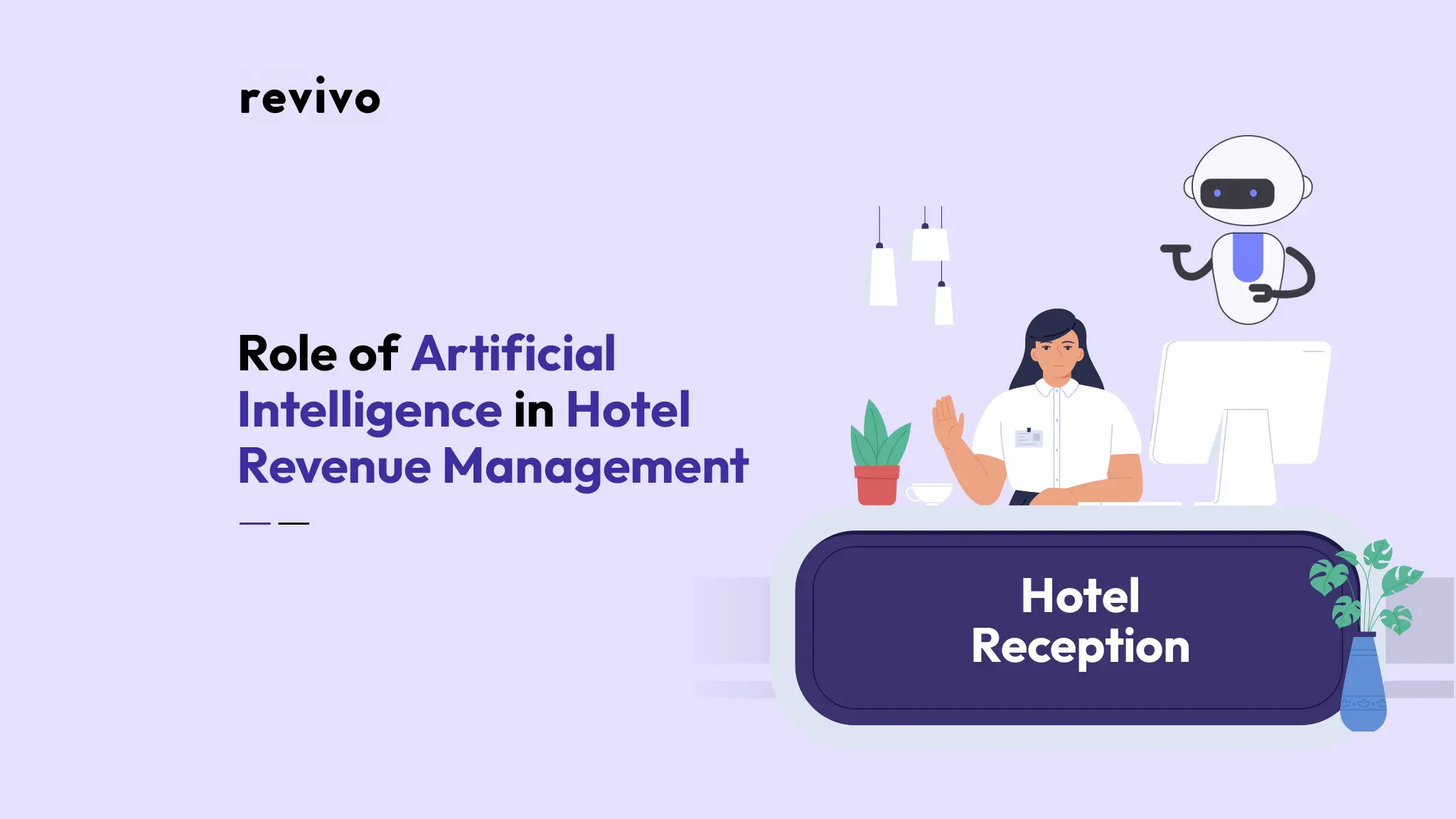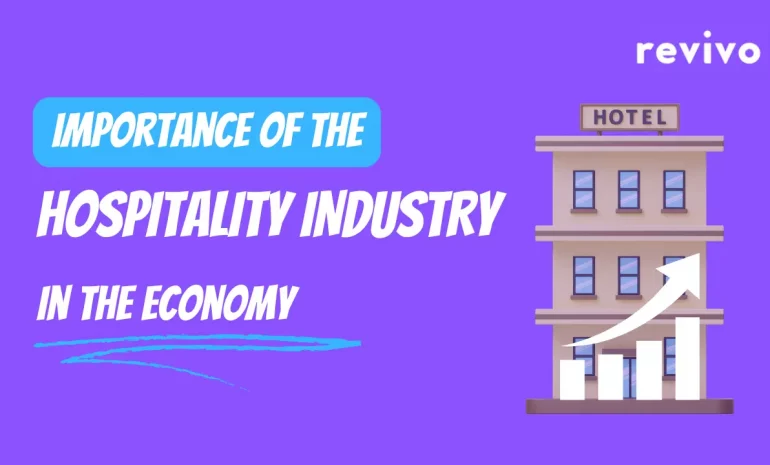Artificial Intelligence in Hotel Revenue Management
Are you a hotelier still using traditional hotel revenue management systems? If yes, the time has come to upgrade yourself and reconsider your choices.
Technological advancements in the hotel industry are continuing to make significant strides in terms of automated management, growth and scalability of the hotel. Traditionally, hoteliers relied on data insights gathered manually from guests staying in the hotel. This lacked the opportunity to provide analytics and actionable insights to manage the revenue of the hotel.
By leveraging technology-backed hotel management software, hoteliers can capitalise on its intuitive power in predicting market trends, and demand and maximizing profitability.
Similarly, the use of AI in hotel revenue management can be instrumental in optimizing pricing strategies for increased profitability of hotels.
AI in Hotel Revenue Management
The advent and accelerated use of AI is revolutionizing every industry and hotel management is no more an exception. It offers data-driven insights that were once unimaginable to gather for analytical decision-making.
Customers, nowadays, demand better pricing before spending on any product and service.
In tandem, AI in hotel revenue management focuses on historical and non-historical data collected from guests’ booking patterns, preferences, and market conditions to achieve a higher degree of accuracy.
Subsequently, its focus on external factors helps hoteliers to understand the critical market dynamics, before making a decision based on a few mathematical calculations.
7 Benefits of AI-based Hotel Revenue Management
According to recent stats, the global AI in hospitality market size is projected to grow at a CAGR of 20.36% from USD 16.33 billion in 2023 to USD 70.32 billion by 2031.
Owing to several factors like automation of workflows for operational efficiency, elevated guest experience and optimization of room pricing contribute to a surge in its implementation across hospitality and other industries.
Let’s delve deeper into the crucial benefits of using an AI-based hotel revenue management system.
1. Simplified and deeper data analytics
Compared to traditional ways of gathering data and analysing for hotels’ revenue generation, new-age AI-embedded revenue systems work on an innovative approach to streamline data collection and analysis.
It streamlines the complete process through its capabilities to potentially analyse vast amounts of data to identify the guests’ patterns and trends.
Further, by integrating the use of Machine Learning algorithms, it filters relevant data for better accuracy. This helps hoteliers make informed decisions and optimize revenue.
2. Predicting guest behaviour
With the help of insightful data, AI revolutionizes hotel revenue management with precision in understanding guest behaviour. This prompts hoteliers in optimizing pricing and enhancing guest experience for maximized revenue.
AI algorithms are recognised for their potential in forecasting demand and identifying loyal or repeated customer bases.
As a result, room rates are adjusted accordingly to further aid hoteliers in allocating resources efficiently for other functions.
With anticipated guest needs and preferences, hoteliers can offer personalised services, ultimately driving more bookings and revenue from repeat customers.
3. AI dynamic pricing
This technology possesses an intuitive power that plays a pivotal role in dynamically adjusting room pricing, based on real-time data insights.
Hoteliers can automate room updates based on multiple factors like occupancy and market demand, ensuring maximum bookings at the highest possible.
This ensures hoteliers are able to offer competitive rates while maximizing pricing and availability instantly, without manual intervention.
4. Identifying and mitigating potential risks
Hotel revenue management can be daunting, especially if you’re manually managing a property chain with each property having more than 50+ rooms.
Increased risks of losing opportunities due to external factors can further worsen your cashflow.
However, the use of AI in hotel revenue management monitors every booking channel from where your property gets revenue.
With constant monitoring, it alerts hoteliers about potential risks and helps them with mitigation strategies based on data gathered. This makes the entire revenue management system/ERP Software more efficient and growth-oriented.
5. Capitalising on profitable discounts and offers
As part of the business growth strategy, several hoteliers focus on running exclusive discounts and offer campaigns.
Sometimes, these offers work in the favor of hotels and bring remarkable results but when these offers become unproductive, the hoteliers might lose bookings to other market players giving away better discounts than them.
Hence, it is critical to leverage data-enabled analytics to design fruitful discount campaigns.
Conclusion
As AI continues to leave an indispensable mark in the industry, its implementation across the hospitality industry is only going to grow. The global hotel industry relies on guest experiences.
To augment their efforts in attracting guests requires a diligent approach to understanding their behavioural preferences and AI in hotel revenue management can further expedite revenue generation and growth.
FAQs
1. How is AI used in revenue management?
AI in revenue management optimizes pricing strategy for hotels based on market trend analysis to align its offerings and enhance profitability.
2. What is the role of artificial intelligence in the hotel industry?
As the hotel business is based on guests, AI becomes imperative in enhancing guest experiences and streamlining hotel operations to boost efficiency, guest satisfaction and revenue.
3. How is generative AI impacting revenue management for hotels?
Gen AI understands guests’ booking patterns and preferences as well as external market factors influencing hotel bookings. Based on these insights, Gen AI predicts demand and boosts hotel’s profitability.
4. What are the 7 core principles of revenue management?
The seven core principles of revenue management, specifically for hotels are forecasting, pricing adjustments, inventory control, demand analysis, maximizing distribution, room availability management, and optimization.
5. How does AI improve revenue?
AI enhances decision-making for hoteliers to embed strategies that work towards improvements of the hotel’s revenue.



